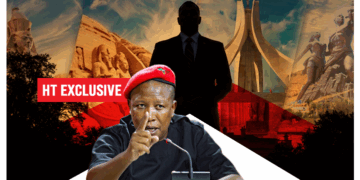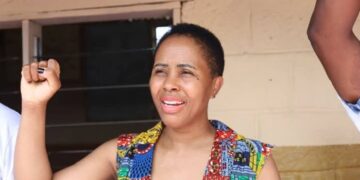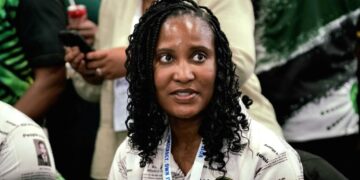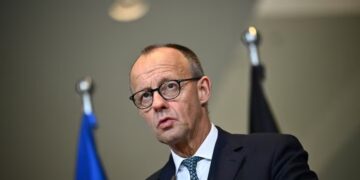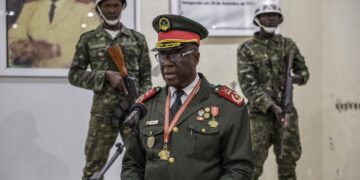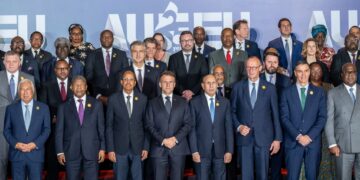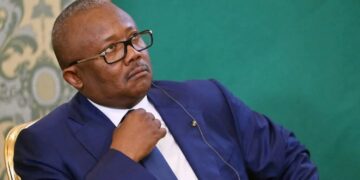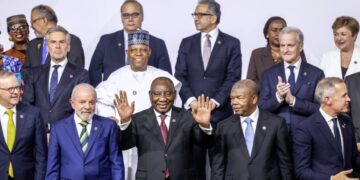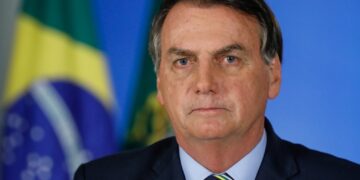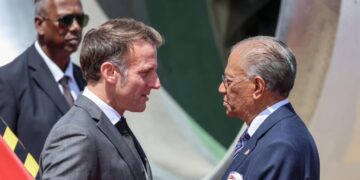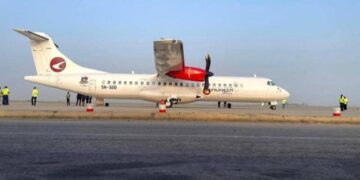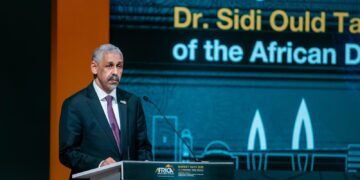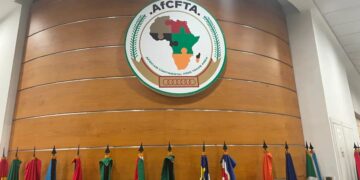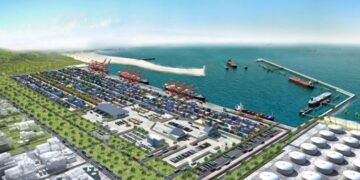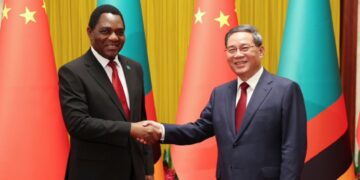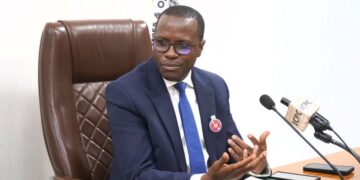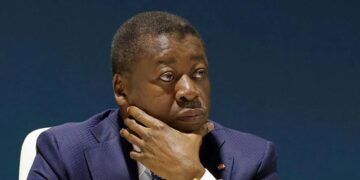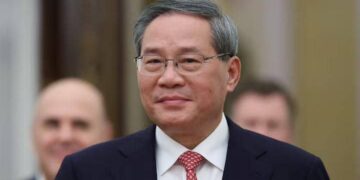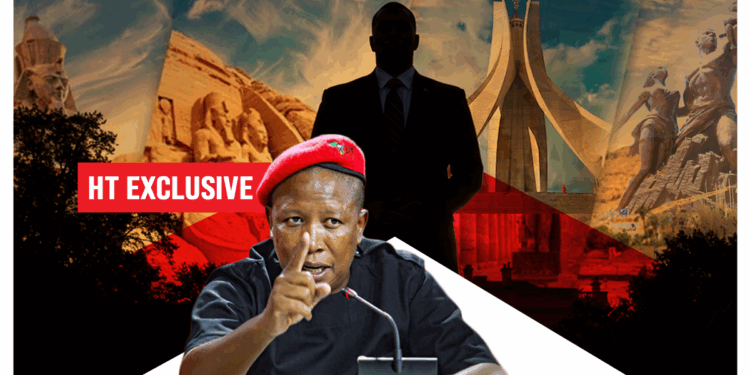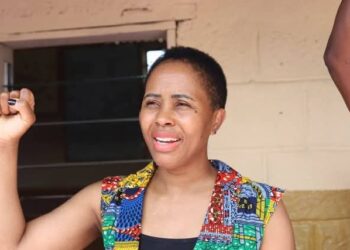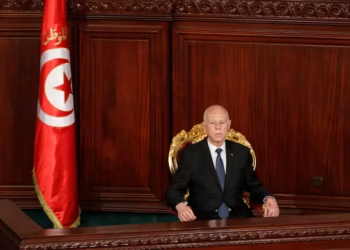By Enyichukwu Enemanna
South Africa’s prominent opposition leader and the president of Economic Freedom Fighters (EFF) recently re-awakened the consciousness of Africans with his renewed call for the continent to forge common frontiers and unite under one presidency, as a step towards dismantling what he called colonial-era borders to foster unity, economic co-operation and enhanced ties as a people with a common destiny.
This is not the first time such call was brought to the fore, as the campaign to put in place a united political and economic structure for Africa, just like the European Union model, has remained a talking point for decades. What is however striking about Malema’s call at the general conference of the Nigerian Bar Association (NBA) in Enugu, South East Nigeria is that it is coming at a time the continent is galvanising efforts to break trade barriers, dismantle needless roadblocks and unlock billions of dollars in untapped human and material resources of the continent.
“We demand one Africa, we demand a borderless Africa, we demand an Africa with one president, one currency, one military command, with one parliament,” Malema said in his speech at the gathering that had thousands of lawyers in attendance. “We know the currency of Africa will be much stronger against the American currency. We don’t care what Donald Trump or any other leader thinks of us. Africans must refuse to be subjects of others. We must stand together as the world changes and show the world that Africa is one and equal to all nations.”
While analysts have argued that Africa under a single presidency will witness enhanced continental integration, as all existing 54 fragmented voices will now have to speak in unison to have a stronger bargaining power in international diplomacy, others have said underneath the plethora of perceived gains of such political and economic arrangement lies abundant cultural and ethnic questions, from where perceived cries of marginalisation could spring up as it would be very difficult for one central authority to effectively coordinate affairs in a way that gives every segment of the society a sense of belonging.
Potential Economic Powerhouse
Julius Malema, largely seen as a radical Pan-Africanist, is not new in the campaign for a freer and more independent Africa. He has for decades advocated for policies centered on continental unity, economic emancipation, and decolonisation. Economy, again, was a central point in his latest call at the NBA conference because it plays an essential role in determining the growth and development of an individual, people, nation and continent. He faulted the “dark continent” tag on Africa even by those who have for centuries exploited the rich mineral resources underneath its earth for selfish purposes.
Malema argued that Africa’s 54 sovereign states, with high-value mineral wealth and human capital, have the potential to become an economic powerhouse only if there is unity of purpose, which will see them come under a single political and economic structure — single presidency. He represented many voices when he said Africans have the capacity to create industries and process their own resources rather than allowing external powers to exploit them. In his words, “The land belongs to Africans, and the minerals of Africa must be returned to Africans. We have the capacity to create industries and process our minerals here. We must never allow imperialist forces to divide us in order to take our wealth. Our salvation lies here, in Lagos and Johannesburg, in Abuja and Pretoria, in the hands of Africans who refuse to be divided.”
Key mineral resources essential to drive the economy are found in many African nations, including gold found in Ghana, Platinum Group Metals (PGMs) seen in South Africa, diamond available in Botswana, tanzanite abundant in Tanzania, tsavorite garnet dotted in Kenya, copper deposited in Zambia, cobalt found in DRC, oil & gas seen in Nigeria, coal found in Mozambique, uranium found in Namibia, bauxite found in Guinea, phosphate found in Morocco, graphite found in Tanzania and several others key in driving industrialisation. His advocacy for single presidency will have all these brought under one administrative roof.
Moreover, leaders across the continent have made visible moves to think of more innovative ways to maximize these resources by putting in place mechanisms to ensure that the era of exporting them outside the shores of the continent in raw form is permanently put in the past. By constructing local refineries, more value is extracted from these resources, employment opportunities are created, local industries receive a boost and more income is generated to fund the budget. “We must unite against the forces that seek to exploit us,” Malema stated. Building local capacity to process these mineral deposits is one of the sustainable ways to fight such economic imbalance.
Enhanced Security, Infrastructure and Greater Currency Value
Observers have argued that a single military command will bring about enhanced defence and security systems through collaboration, teamwork and shared intelligence. In their opinion, galvanising internal military resources will reduce over-reliance on foreign support to tackle peculiar security issues confronting the continent.
The tripod security pact among junta-led Mali, Niger and Burkina Faso has been referred to as a model that could enhance coordination against terrorism and cross-border crimes effectively. Under one presidency as Malema advocates, the same military command responsible for fighting al-Shabaab threats in Somalia will also be the one to put up efforts against the M23 rebels in the eastern DRC as well as Boko Haram in Chad.
There has also been an argument that such political arrangement would bring about increased development in infrastructure such as power grids, cross-border railways, digital connectivity as well as human capital projects such as education, as a unified leadership could prioritise continental projects. Additionally, shared funding could have a far-reaching impact as duplication would be avoided.
Also, economists have argued that a common monetary policy or single currency could stabilise the economy of the continent, reduce costs associated with production as well as serve as a measure to protect against possible external economic shocks. In Malema’s opinion, a single African currency would be more powerful against foreign currencies like the U.S. dollar and British pounds.
Religious, Cultural and Language Diversity
With an estimated population of 1.5 billion people, with divergence in religious and ethnic affinity, a central governance structure could be complex to manage as it could trigger a sense of perceived unfair treatment. The presence of over 3,000 ethnic groups and 2,000 languages could trigger unhealthy rivalry and squabbles for supremacy, which could truncate peaceful co-existence and derail development.
In advancing political, economic or social interests, the giants within the continent, such as Nigeria, South Africa, Egypt and others could disagree, a development that could fuel crisis and conflict. Under such circumstances, the continent will be divided as against being united.
Lending her voice to the debate, an international affairs analyst, Oyebola Ajiboye, advocated enhanced cooperation as against single presidency. “If you look at it from the point of view of geopolitics, North Africa, though geographically located in Africa, culturally and historically has more affinity with the Middle East. When push comes to shove, I would like to believe North Africa will align with the Arabs. One could also argue that Muammar Al-Gaddafi of Libya, a great pan-Africanist who preferred to deepen his solidarity with pan-Africanism than pan-Arabism, in contrast to other North African countries like Morocco, was very vocal in the African Union.” She continued, “Talking about relinquishing sovereignty, I honestly do not believe any state or country, no matter its colonialist imperfections, is ready to relinquish power and authority in favour of one Africa.”
Also, a media executive, Maymunah Ahuoiza Zubair, highlights that the internal conflict within some countries could be a shadow of what will be witnessed under a central leadership structure. She emphasized that language, cultural and political differences could be some of the barriers likely to be encountered.
“As a Nigerian living in Nigeria, the heterogeneous nature of our country and how difficult it is to govern makes it a veritable microcosm of what it could be to attempt to unify the entire continent under one leadership. Our economic disparities, language differences, traditional/political leadership styles would prove as a stumbling block to a unified African polity,” she stated.
While every effort to unite Africa should be encouraged, strengthening institutions such as the African Continental Free Trade Area (AfCFTA), which connects nearly 1.5 billion population to a single market, the African Union (AU), the African Export-Import Bank (Afreximbank), the United Nations Economic Commission for Africa (UNECA) and others will serve as an elixir towards achieving cooperation that works for the continent.
